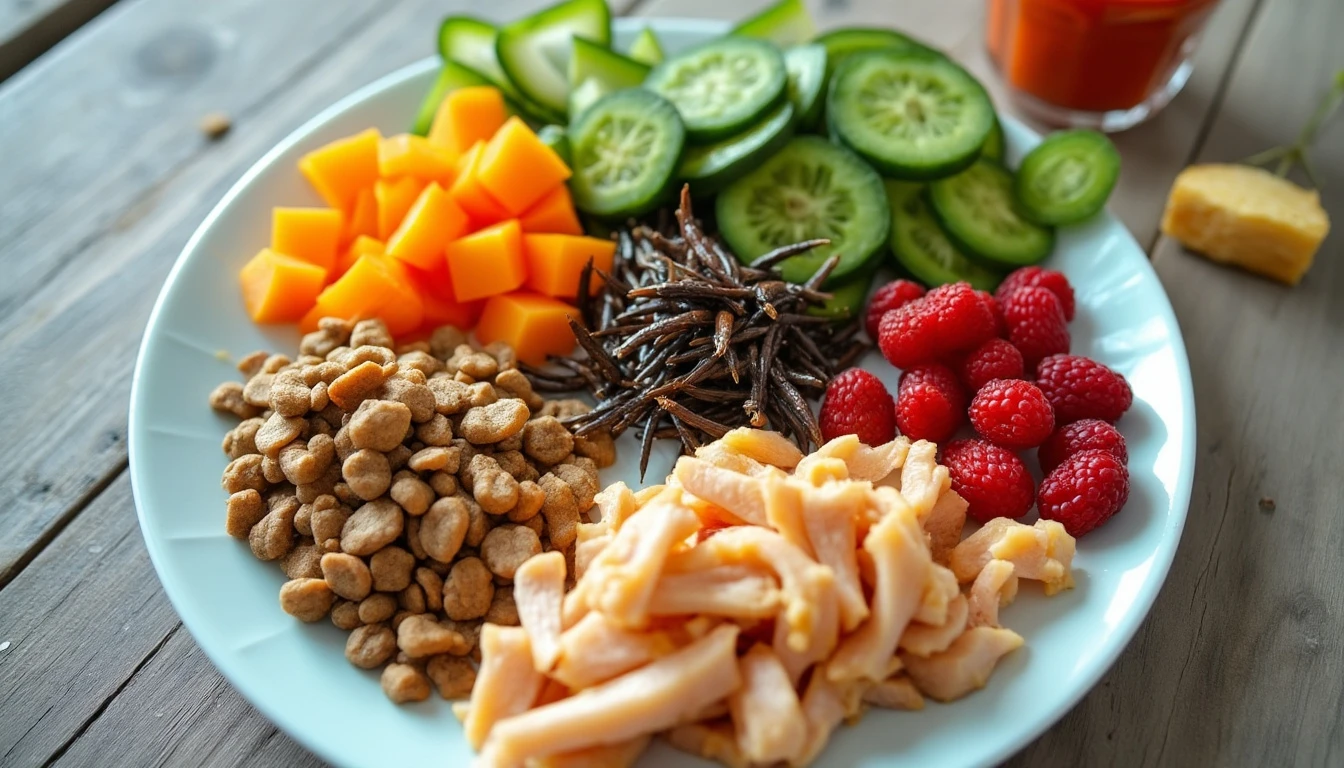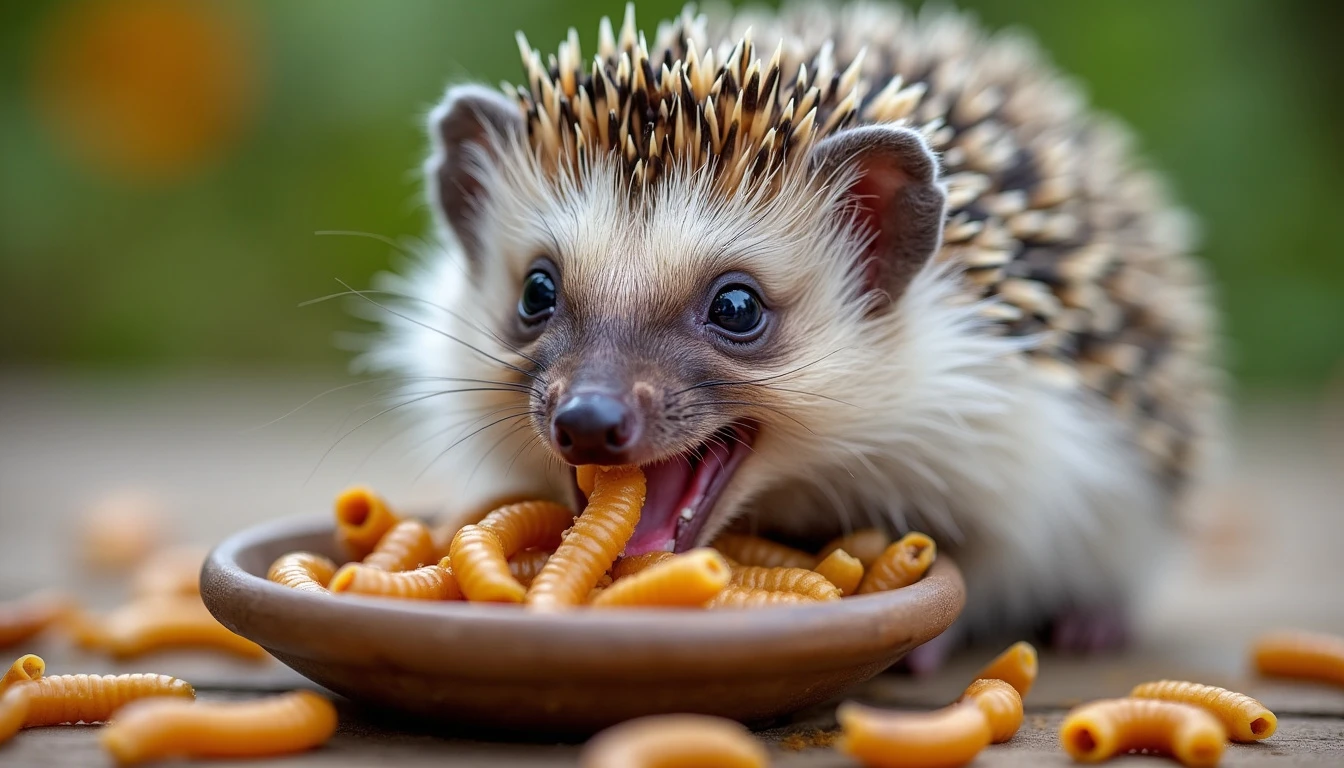Hedgehogs are charming and unique pets that have captured the hearts of many animal lovers. With their spiky exterior and playful demeanor, these small mammals make fascinating companions. However, potential owners often ask, “What do pet hedgehogs eat?” Understanding the dietary needs of these adorable creatures is crucial for their health and well-being. In this guide, we’ll delve into everything you need to know about feeding your hedgehog, from their nutritional requirements to safe and harmful foods.
The Basics of Hedgehog Nutrition
Hedgehogs are primarily insectivores, meaning their diet should reflect their natural feeding habits. They require a balanced intake of proteins, fats, and carbohydrates to thrive. The ideal diet for a pet hedgehog includes:
- Proteins: Essential for growth, energy, and overall health.
- Fats: Necessary for skin and coat health.
- Fiber: Important for digestive health.
- Vitamins and Minerals: Critical for immune function and overall vitality.
Recommended Dietary Composition
For optimal health, a pet hedgehog’s diet should be composed of:
- Protein: 60-70%
- Fat: 15-20%
- Fiber: 5-10%
This composition mimics their natural diet while providing the necessary nutrients for pet hedgehogs.
What Do Pet Hedgehogs Eat? Safe Foods for Your Hedgehog

1. Commercial Hedgehog Food
Commercial hedgehog foods are specifically formulated to meet their nutritional needs. These diets contain a balanced mix of proteins, fats, and fiber, ensuring that your hedgehog gets everything it requires.
- Brands to Consider:
- Hedgehog Food by Exotics Nutrition
- Mazuri Hedgehog Diet
- Oxbow Essentials Small Animal Food
2. Protein Sources
A high-protein diet is vital for hedgehogs. Here are some excellent protein sources you can include:
- Insects: Mealworms, crickets, and waxworms are great options. They mimic the hedgehog’s natural diet and are readily available.
- Cooked Meat: Lean chicken, turkey, or beef (without seasoning) can be offered occasionally.
- Eggs: Scrambled or hard-boiled eggs are a nutritious treat that can be provided once in a while.
3. Fruits and Vegetables
While hedgehogs primarily thrive on protein, they can enjoy small amounts of fruits and vegetables as treats.
- Safe Fruits:
- Apples (remove seeds)
- Blueberries
- Bananas (in moderation)
- Safe Vegetables:
- Carrots (grated)
- Peas
- Cooked sweet potatoes
4. Avoiding Harmful Foods
Certain foods can be toxic or harmful to hedgehogs. Be cautious and avoid:
- Citrus Fruits: Can cause digestive upset.
- Onions and Garlic: Toxic to many animals, including hedgehogs.
- Chocolate: Highly toxic to all pets.
Common Health Issues Related to Diet
1. Obesity
Obesity is a common issue in pet hedgehogs due to overfeeding or lack of exercise. Monitor your hedgehog’s weight regularly and adjust their diet as needed.
2. Digestive Problems
A sudden change in diet can upset a hedgehog’s digestive system. Introduce new foods gradually, and monitor for signs of distress, such as diarrhea or bloating.
Ask the Expert
Question: What’s the biggest diet mistake new hedgehog owners make?
Dr. Emily Hart: “Many people think hedgehogs need a diet full of fruits and veggies, but they are primarily insectivores. It’s essential to focus on protein sources to keep them healthy.”
Nutritional Chart for Pet Hedgehogs
| Food Type | Examples | Serving Size | Frequency | Potential Risks |
|---|---|---|---|---|
| Commercial Food | Exotics Nutrition, Mazuri | 1-2 tablespoons | Daily | Ensure high protein content |
| Insects | Mealworms, crickets | 5-10 per feeding | 2-3 times a week | Provide live or dried insects |
| Cooked Meat | Chicken, turkey | 1 teaspoon | 2-3 times a week | Avoid seasoning |
| Fruits | Apples, blueberries | 1-2 small pieces | 2-3 times a week | Remove seeds and skins |
| Vegetables | Carrots, peas | 1-2 tablespoons | 2-3 times a week | Cooked is preferable |
| Treats | Hedgehog-specific treats | 1-2 small pieces | Occasionally | Use sparingly |
Did You Know?
Hedgehogs have around 5,000-7,000 spines! These spines are not only for protection; they also help them maintain their body temperature.
Conclusion
Caring for hedgehogs means understanding their unique dietary needs. A balanced diet of high-quality commercial food, occasional fresh treats, and plenty of protein is key to a healthy, happy hedgehog.
Ready to welcome a hedgehog into your home? Research reputable breeders or consider adopting from a rescue organization. Share your experiences or questions about hedgehog care in the comments below!
Additional Resources
- Hedgehog Welfare Society for care guides and community support.
